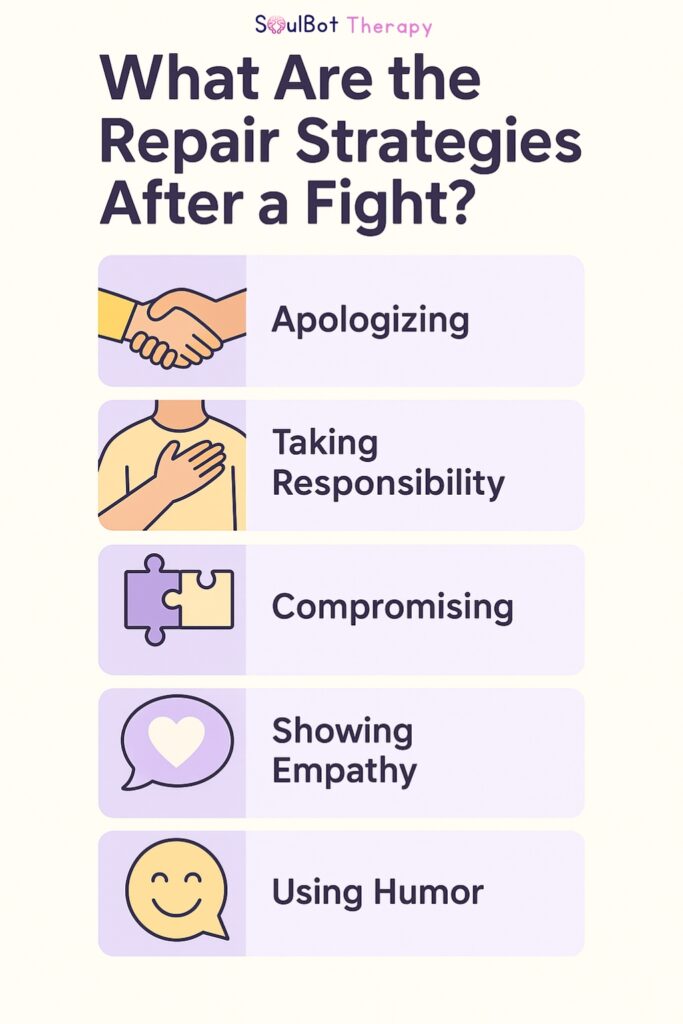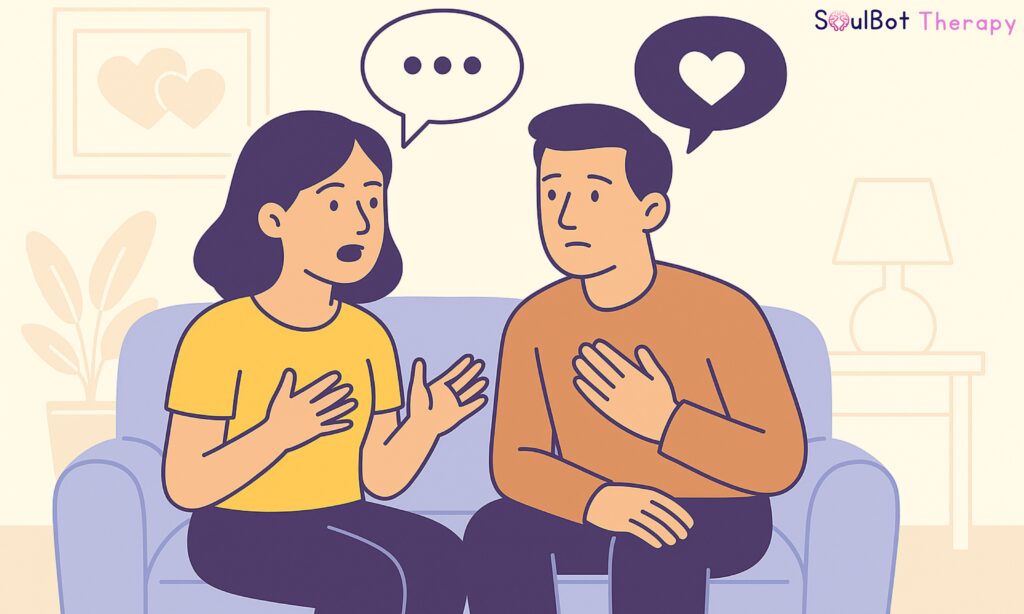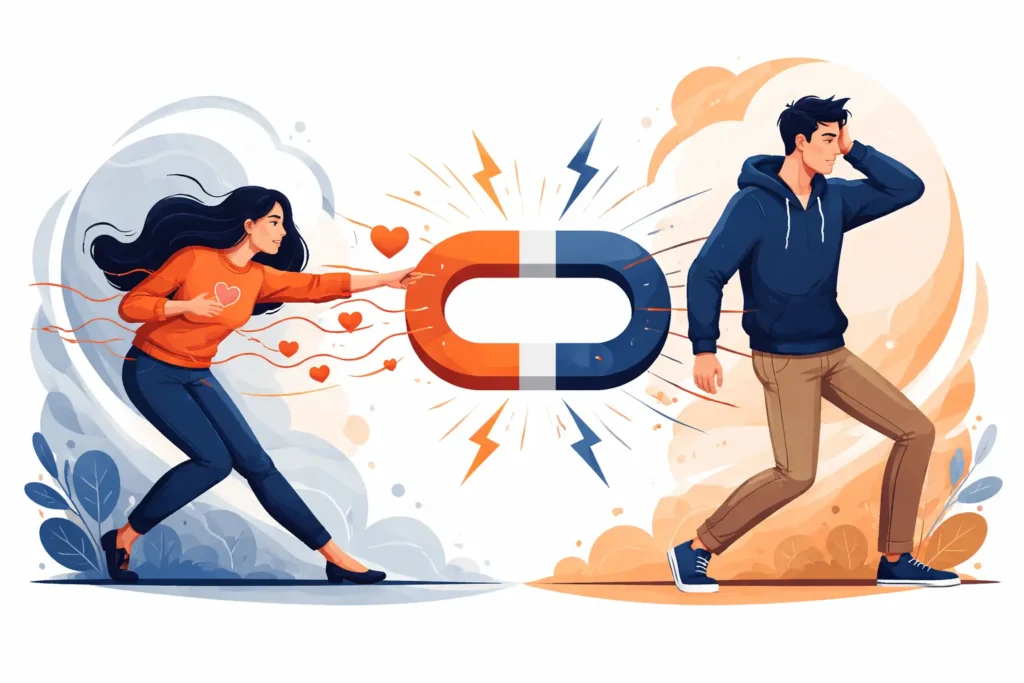When emotional safety in relationships breaks down, even minor disagreements can feel like personal attacks.
- You hesitate to speak up.
- You second-guess your tone.
- You walk on eggshells to avoid triggering a reaction.
That’s not love, it’s survival mode. Absolute emotional safety means knowing you can speak your truth without fear of being dismissed, blamed, or shut out.
Here’s how to protect emotional safety, even when things get heated.
Why Emotional Safety in Relationships Matters More Than You Think?
Emotional safety isn’t about avoiding arguments. It’s about creating space where both people feel safe to be vulnerable, even in the middle of conflict. Without that safety net, even the healthiest relationships start to rot.
When partners feel heard and respected, they’re more likely to repair quickly after conflict. But when emotional vulnerability is met with defensiveness or criticism, disconnection takes over.
Think of emotional safety as your relationship’s shock absorber. It doesn’t stop conflict, but it eases the impact.
🧘♀️SoulFact: According to the Gottman Institute, 69% of relationship conflict is about unsolvable issues, but how couples talk about these issues makes all the difference.
What Breaks Emotional Safety in Relationship?
You can’t fix what you don’t name. So let’s get honest.
These are common triggers that quietly chip away at emotional safety in relationships:
- Dismissing each other’s feelings as “too sensitive” or “overreacting”
- Using sarcasm or silent treatment during arguments
- Weaponising past mistakes
- Constant interrupting or invalidation
- Shaming vulnerability (e.g., “You’re too emotional”)
Without mutual respect and accountability, emotional safety doesn’t stand a chance.
Conflict Doesn’t Kill Relationships, Poor Communication Does
Let’s be clear: conflict is not the enemy. In fact, healthy communication during arguments can deepen intimacy if you know how to navigate it.
Start with these conflict resolution skills:
🔹 Use “I” statements, not accusations
🔹 Pause if you’re too angry to listen
🔹 Mirror back what your partner says to provide clarity
🔹 Avoid broad generalisations like “You always” or “You never”
These simple habits can defuse tension and rebuild emotional safety in real time.
🧘♀️SoulFact: A study published in Psychological Science (2019) found that emotional validation during conflict reduces stress responses in romantic partners.
Tools to Strengthen Emotional Safety in Real Life
- Set Ground Rules for Arguments
Decide together: no yelling, no cursing, no storming off.
Mutual boundaries = mutual respect.
2. Name Your Emotional Needs
“I need reassurance right now” is more helpful than “You never care.”
3. Validate Before You Fix
Sometimes your partner doesn’t need solutions; they need to feel seen. Say things like, “That makes sense,” or “I can understand why that hurt.”
4. Create Safe Rituals
Daily check-ins, weekly “no phone” dinners, or shared bedtime routines all reinforce a sense of stability and emotional security.
5. Use Humour—Carefully
Playful teasing can ease tension. Just make sure it’s mutual and never at your partner’s emotional cost.

What are the Repair Strategies After a Fight?
You messed up. Or they did. Either way, here’s how to rebuild emotional safety in relationships:
- Acknowledge your role clearly: “I realise I wasn’t really listening earlier.”
- Ask what they need: “What can I do now to support you better?”
- Offer physical comfort if welcome: a hand squeeze, a hug, or even just sitting close.
- Share one positive intention: “I want us to feel close again.”
It’s not about being perfect. It’s about being present even after things go sideways.
When Conflict Runs Deeper
Sometimes emotional wounds run deep. Maybe there’s past trauma, trust issues, or chronic patterns of shutting down. In those cases, communication tools alone aren’t enough.
This is where relationship repair strategies involve support beyond the couple:
- Couples therapy
- Trauma-informed coaching
- AI tools like SoulBot that offer real-time emotional check-ins and coping strategies
- Personalised love language insights to understand how each partner gives and receives care
💬 Take the Love Language Test to learn how you and your partner connect emotionally—even during challenging conversations.
Final Thought: Safety First, Not Silence
Having conflict isn’t the problem. Avoiding it because you don’t feel safe? That is.
When emotional safety in relationships becomes a priority, not an afterthought, you stop fighting to win and start talking to understand. And that’s the difference between surviving a relationship and growing through it.
🧠 Want to improve your emotional fluency in relationships?Try SoulBot's free mental health tests and get actionable insights tailored to your relationship dynamics.







